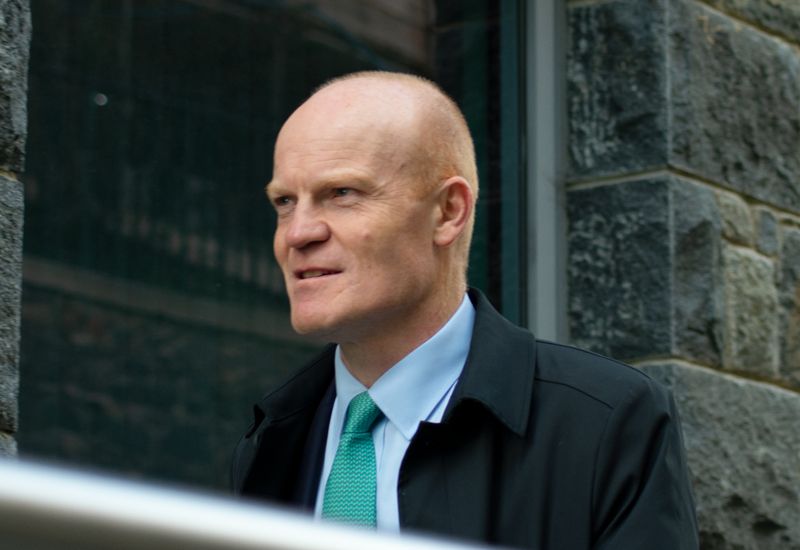


With no regular committee statements or substantive policy letters and a meeting done and dusted in a day, it’s a bit of a challenge to find much to comment on in relation to last week’s States’ meeting.
The main business of the meeting was the approval of various States-related accounts.
In addition to the main States’ accounts, there were the Ports, Guernsey Dairy, Guernsey Water, States Works and Guernsey Waste. Lost in the mists of time, other accounts are lodged as ‘appendix reports’ which means they don’t get debated unless a member seeks the Assembly’s approval to debate them. This includes the Ladies’ College accounts (for the senior school only, not Melrose) and the Channel Islands Lottery accounts. Ironically, it does seem to be a bit of lottery as to what is lodged for debated, what is lodged but not for debate and what is not lodged at all – such as the accounts of the other grant aided colleges. These anomalies just reflect a rich and varied history for each institution. For example, Guernsey Post, Guernsey Electricity and the Guernsey Financial Services Commission annual accounts will all be debated at some point because there is legislation which provides that this be so. However, Aurigny, the fuel ship tanker company and the new company formed to own the Condor Islander that-no-one-can-know-why-we-bought, all remain confidential.
In the past, most Presidents felt obliged to provide commentary on their committee’s expenditure, but the new format for the States Accounts to bring greater alignment with international accounting standards, meant this information fell away, so changed the nature of this year’s debate as Presidents largely sat on their hands. Indeed, the absence of much debate was the main takeaway.
The other accounts tend to produce a debate which is more of a Pavlovian dog-style word association response, than a debate of the accounts themselves. Deputy Roffey says, ‘Guernsey Dairy’, and this triggers comments about the quality of Guernsey Butter and the annual plea that ‘we-ought-to-be-more-like-Jersey-and-export-more.’ Or Deputy Roffey introduces, the Guernsey Water accounts, and Deputy De Lisle is as certain to leap to his feet - to talk about Guernsey’s dirty little secret with sewage in the Little Russel - as he will when the Treasury lead mentions ‘TRP’ in each annual budget.
There was one curious sideshow. The Commissioner for Standards had, of her own volition, whilst investigating another complaint stumbled across what she regarded as a breach of the Code with an inappropriate sharing of confidential information by Deputy Blin. She investigated further and, as a result, had recommended a formal reprimand. Deputy Blin quickly ‘fessed up to this error and apologised. The case against Deputy Blin seems to have emerged from a complaint against Deputy Andy Taylor for, ironically perhaps, inappropriately sharing information. Deputy Taylor used the debate to let it be known that the complaint against him had been lodged by local property developer, Charles McHugh.
That complaint was dismissed. Deputy Taylor and Mr McHugh have quite a long history of sparring both publicly and privately. It was quite clear from the debate that members were either not interested or struggling to keep up with the detail of who said and did what to whom. The net result was Deputy Taylor was interrupted multiple times as he tried to speak, largely on the ground that his content did not relate to the proposition to reprimand Deputy Blin. Deputy Taylor valiantly pushed on in his efforts to explain why, in his view, his comments did relate to Deputy Blin’s case. Interestingly, either nobody noticed or they didn’t care that Deputy Taylor was using the protection of absolute parliamentary privilege to say what he felt he needed to say. Instead, Deputy Ferbrache had the Commissioner herself in his sights. In particular, he felt strongly that the comments in her report that this case was just one of many by members breaching rules around confidentiality, were wholly inappropriate. By her own admission, he said, she had no evidence to prove this statement. And, whilst his ire was up, he also wanted to know how much this whole investigation had cost. He seemed to be implying that we might regret having created an expensive monster.
In contrast to prior investigations by the old Code of Conduct Panel before the Commissioner of Standards was created, the debate was pretty short and well-tempered. That either suggests members are pretty content with the new Commissioner-driven process or, much like the accounts, they really had very little to say.